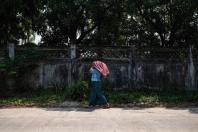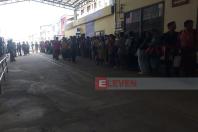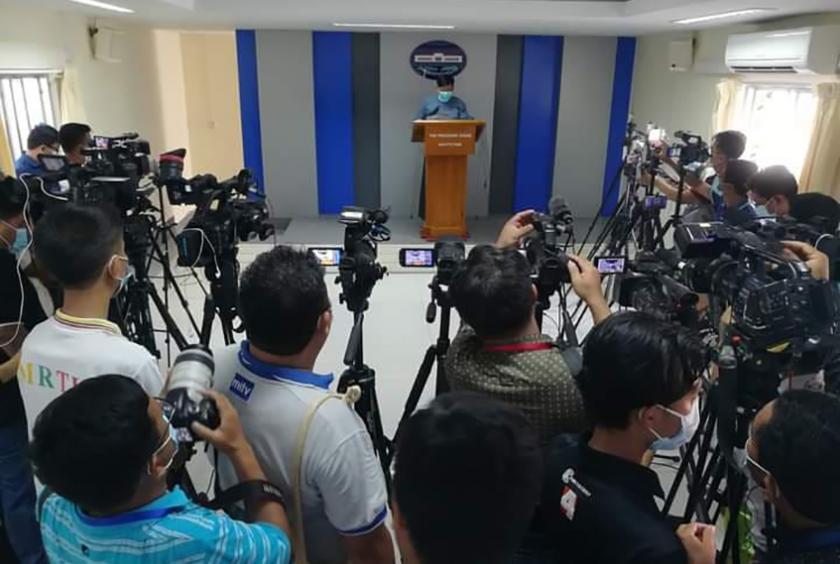
On September 20, the government instituted Stay-at-home order in 28 townships within the Yangon Region. The order from the Ministry of Health & Sports came at a time when Yangon, Myanmar's main business hub, saw nearly 3,000 COVID-19 infection cases.
The instructions for all residents of Yangon, excluding CoCo Islands, were to only stay at home. Industries that were exempted from this order included: Banking & Financial Services, Fuel Stations and Distribution, Foodstuff & Frozen Poultry and Fish, Pharmaceutical and Pharmaceutical Equipment Manufacturing and Distribution, Purified Water manufacturing and distribution, factories that manufacture daily usage CMP. Those found in breach of these rules will be penalized according to existing laws, the order states.
The following day, another order allowed other industries and businesses to be exempted from these stay-home orders. They were air transport services such as general flights, relief flights, cargo flights, chartered flights, air fueling services and cargo services, freight forwarder companies, tax services agencies, food manufacturers and distributors for airplanes, airplane maintenance staff, private port staff dealing with international cargo ships at the Yangon International Port, shipping line representative offices, cargo truck services, cargo truck services for ports, inland cargo stations, communications services such as mailing, telecommunication services for landlines or mobile lines, internet services (does not include shop that sells phones or data), telecommunication towers, and fiber maintenance staff.
After this order, all other types of businesses and industries except for those listed above were ceased for the period between September 24 to October 7.
Checks were also carried to ensure that there will be no illegal passing between townships starting on September 27 and turned back all vehicles that were out for urgent matters.
When the government implemented the Stay-at-home program for the Yangon, Myanmar’s business hub, the ones hit hardest were the low-income group of citizens.
Many migrants that moved to Yangon from assorted states and regions that are living mostly in Hlaingtharyar, Insein, Tharketa, and Thanlyin can no longer head out to work.
"The car ferrying me to work does not know where to come. I myself cannot get out of here as well," said a female worker that travels daily into Yangon from Thanlyin.
Market vendors and daily wage earners are already facing trouble getting food on the table as they have yet to receive any support.
The government has announced that workers that were a part of CMP workshops and factories that pay social welfare will be supported with 40 percent of their salaries while those that are not will receive 30,000 Kyats ($23).
However, many questions remain unanswered. There are CMP factories that pay for the social welfare of their workers but most of the employee salaries were low and were only earning two to three lakhs (approximately $200) only with overtime bonuses.
They also are not likely to have saved up just in case for difficult times and thus will not be able to earn enough when stuck at home.
"I could never save. Whatever that's earned daily goes to daily grocery costs. And there is debt from times when there was no work for me. So when I get a job and get paid then I have to return that debt. It didn't even cross my mind to save rations. I am getting by with whatever I have. I dare not even think about the long run," said Myint Oo, a welder living in Hlaingtharyar.
Despite the government having issued announcements that had claimed plans were underway to distribute rations while factories were closed in Yangon, there are still no details on how it will be done and how much each household will get. The ward administrators are still in the process of collecting data.
That was a mere fraction of reasons why lower-income class people are harmed during the Stay-at-home situation while some jobs were allowed to continue but many are not. Despite calling it a Stay-at-home program, it is more reminiscent of a Lockdown and relief plans for the people who are late, to say the least.
One of the job-types that are not a part of the list to remain operational is the news media.
Local media companies do not know how to best proceed forward as they are not legally allowed to continue.
"If news pops up and we go to cover it, we do not know whether we will get arrested. We can try and get by with mutual understanding but it is certainly not convenient. There are security checks going to and from different townships. The news will not be timely. And then there is the worry (for COVID-19)," said a local journalist.
There are also criticisms that despite access to information at risk for private media, state-owned media and groups such as Sky Net are able to regulate normally.
The amount of criticism rose when the Ministry of Information took pictures of Yangon on September 28 and released news, especially drawing attention from those in the private media industry.
"Such efforts from your democratic government. Much excellence from the media being controlled by two ex-journalists that have become ministers of the Ministry of Information. Many blessings for your empathy. News media are not allowed to go out under the Stay-at-home program that the government does not dare to call a lockdown. Journalists appealed for the need for them to cover news because it is near the election period and a whole lot of fake news has surfaced. It was ignored but apparently journalists from the most ethical and free media are allowed to roam free. What great laws. If private media dares to go out, take photos, cover news and get arrested, we are going to get lambasted by the 'Sons and Daughters' for being so privileged," said Myat Kyaw Thu, a regular program presenter, on his social media page.
DVB's Current Affairs Director Than Win Htut questioned whether news and information released by the state-owned newspapers are enough for the people's right to information during COVID-19.
"How much out of a 100 percent can the people depend on state-owned media? There is proof in Myanmar as to how much the state-owned media can do for the people while the private media cannot survive. For example, the beginning of the Nargis period. We are trying our best whether it be from home or from an office-lockdown or even on the roads but I feel like we are not making progress. It is an important time for my country and I want to pour in the effort," said Than Win Htut.
Myanmar Press Council(MPC) and other organizations had appealed to the government for the media to resume gathering news within Yangon.
The MPC, in its appeal letter to the government, quoted the Media Law Chapter 2 Paragraph A that said "Media means getting, collecting and acquiring information, keeping them in documentation, analyzing and publishing etc. which shall be performed by Print Media, Broadcasting Media, Internet Media whose responsibilities are taken by the media or public information and communication services conducted by any other alternative ways by means of various transmission forms such as texts, voice, picture, audio and visual transmission, statistical data, and graphic designs." It also said that the public needs regular access to information.
It further warned that the public are at risk from fake and manipulated news and that the news media must remain operational during the Stay-at-home period and suggested swift inclusion of the news media industry to the Stay-at-home order exception list.
The Myanmar Journalist Network (MJN), an organization of local journalists, also highlighted that professional media must be allowed to cover news in a timely manner during the Stay-at-home period where fake news and misinformation are plenty.
MJN appealed that the public needs timely access to valuable knowledge regarding COVID-19 as well as the election and also to prevent confusion, reduce worries by preventing purposeful misinformation. Thus, professional news media must be allowed to operate as an exception under the Stay-at-home program.
The MJN also said that the news media are a service that bring facts and information to the public, encouraging the Myanmar Press Council to act as an intermediary to resolve this issue with the media and those responsible from the government.
Despite skyrocketing numbers of COVID-19 infections in Myanmar and globally, the Union Election Commission (UEC) has announced that the election will be held. As such, the right to information of the people is crucially important.
New Zealand
In New Zealand, the news media were allowed to remain operational as the people needed access to important facts and information as well as professional analysis during the COVID-19 lockdown period.
During the first wave of COVID-19, New Zealand ordered a four-week long nationwide lockdown on March 25, 11.59 pm. This came after 36 more infections of COVID-19 surfaced, bringing the total number of infected to 102. In regards to the lockdown, NZ Herald newspaper documented notable facts and are as follows.
All work that was not deemed a necessity were to close and for all people to stay home unless for self-exercise or to reach necessary services. Supermarkets will remain open during the lockdown and supply routes will remain open. Groups necessary for the lockdown will have to update conditions on the current situations and advice pertaining to the situation. There should not be any panic or fear when the lockdown begins. All citizens can still access supermarkets and foodstuffs will not run out. The government guarantees that supply routes will remain operational. But citizens are advised to draw up their own plans with their family, relatives, friends and community on how to best live during the lockdown period such as whether it is possible to continue their work from home. If a citizen was away from his place of residence, immediate plans must be made to return home.
The aim of the lockdown is to control the spread of the virus. The government will continue to monitor the situation, reducing the severity of the lockdown phase by phase if infection level lowers and danger to the people is lessened. As per regulations of a lockdown, the police and other security forces will maintain order. There will be sufficient police or security forces deployed on the roads. If needed, the military must cooperate. If found to be breaching lockdown rules, authorities will take action. The government can also take as much action as needed against those that would go against efforts to control the virus.
It is important during a lockdown which industries and their services are deemed necessary. Supermarkets and supply routes must remain open and it is the government's responsibility to ensure that food and medicines do not run out. The security of the supermarkets will also be taken care of by the police and security forces. Doctors, Pharmacists, Veterinarians must continue their trade and as such clinics and hospitals will remain open. Emergency services and some construction activities deemed important will remain operational. Public transport must keep running and all other services that the public needs must remain open.
All media such as radio, Broadcast, Newspaper are necessary and will remain open as the people need access to access to important facts and information as well as professional analysis.
India
India, during its lockdown period, only allowed services that were deemed necessary across the nation. Thus it was important that the people know clearly whether they are a part of a job that must keep operational.
Healthcare, police force, fire brigade, water, electricity, cleaning and relief were included. Staff from other departments will either receive a 75 percent paid leave or work in alternating shifts.
Dried foods, vegetables, milk and pharmacies were among several that must be kept opened in regards to markets. Such vendors and employees there must keep their shops open and come to work. Online services, such as the sale of food and other necessities were also allowed to remain operational. But, most of the companies that are allowed to remain open must think of methods to let their staff work from their homes.
Transportation services were also deemed necessary. The railways ceased all trains going to rural regions. Highway buses, trains, private taxis and buses, motorized sidecars were all stopped but some modes of public transport were selected as necessary services such as cargo vehicles carrying foodstuff, medicines, fuel and ambulances as well as transport services (buses) that facilitate access to areas of strategic interest such as airports, hospitals and more. Staff working at those locations must also continue working.
Gas and liquid petroleum distributors and vending stations as well as their staff were allowed to remain operational as they generally provide key elements to necessary services.
All international flights to India were stopped but domestic flights remained open. Thus all cabin crew, field crew and other related staff must all come to work.
The Indian Army reduced the amount of personnel required to check-in at their respective headquarters but still allowed soldiers and other staff in charge of both domestic and international security to pass free of all restrictions.
All staff from print media, electronic media, newspaper, radio departments, broadcasting, websites and such that were part of the news media industry were also deemed as necessary service providers: news media were allowed to continue working provided that they observe health and safety guidelines such as Social Distancing.
Summary
It is the government's responsibility to solve the woes and hardships of lower-income citizens. The right and access to information of the people is equally crucial.
Due to restrictions on access to information, the local private news media industry faces great struggles. The public is aware of differences between the quality of news provided by the state-owned media and the private news media.
It is the government's responsibility to protect the people's right to information so that the public has access to information during this stay-at-home period and election period.



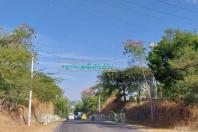
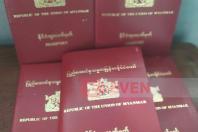
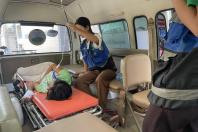
![[Photo credit: Shwe Yoathlwar charity group]](https://elevenmyanmar.com/sites/news-eleven.com/files/styles/most_read_img/public/news-images/plaza.jpg?itok=v6Gn0YGX)

